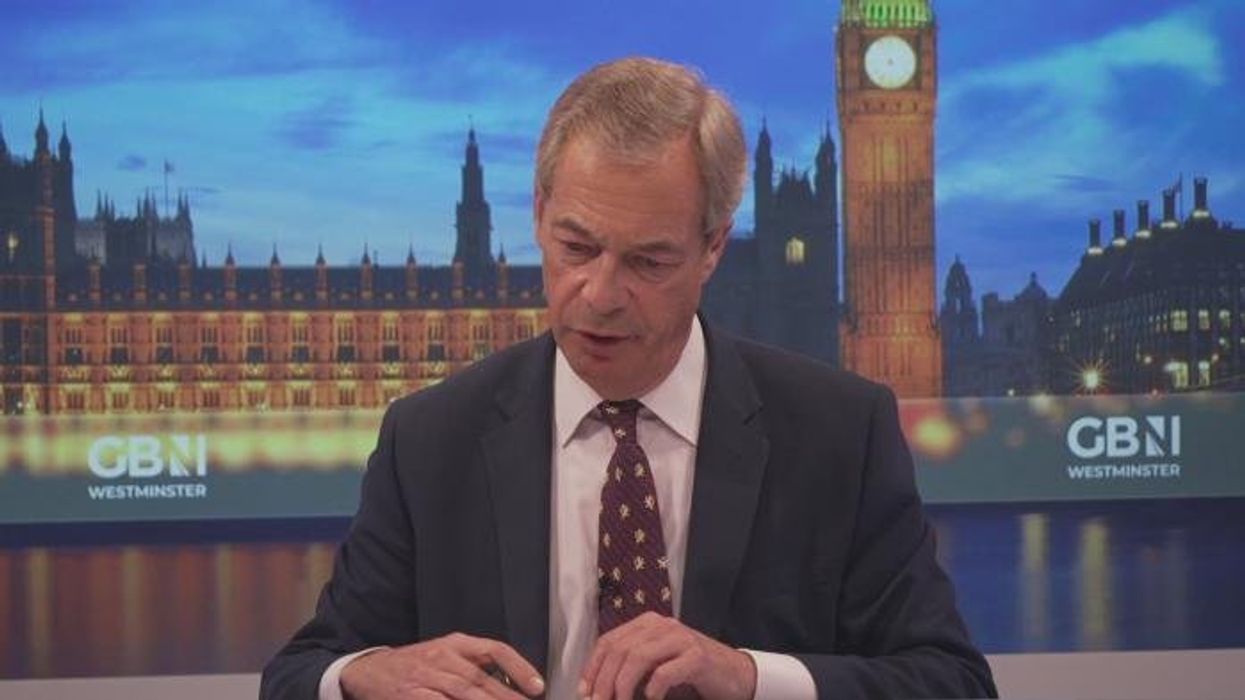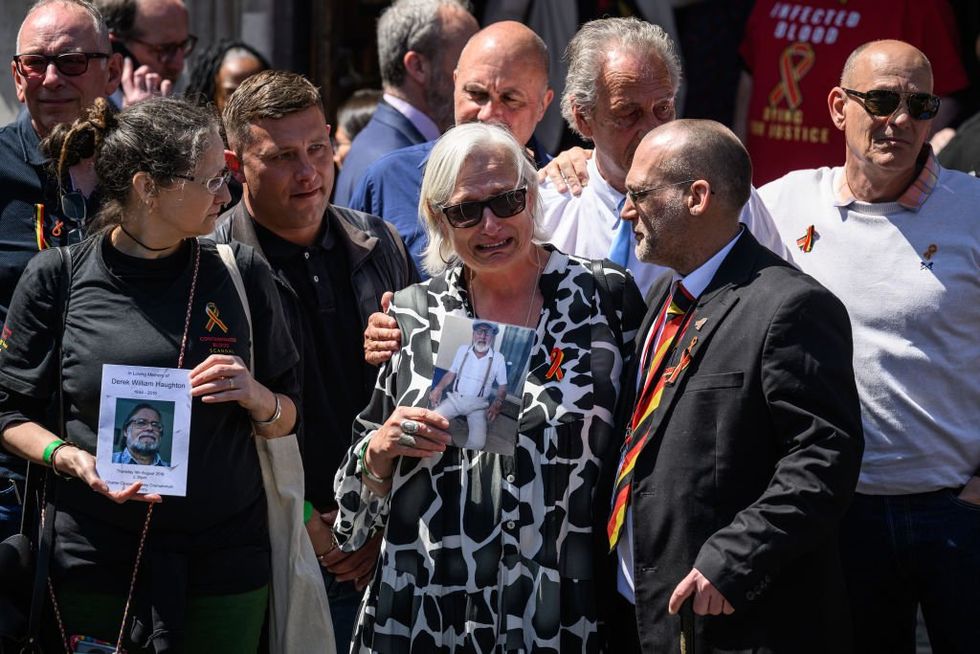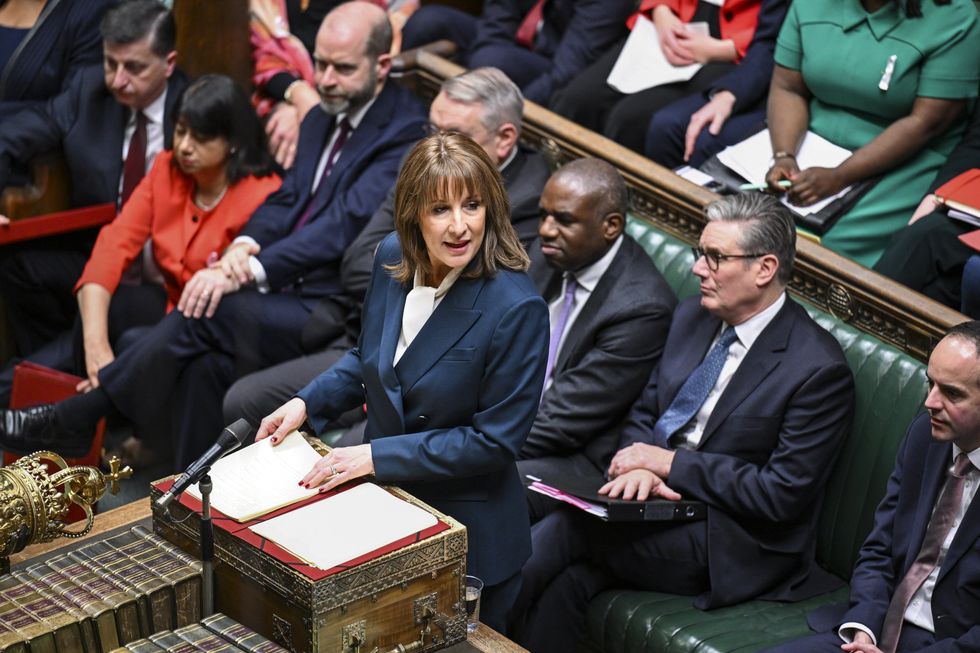Major victory as NHS infected blood scandal victims will not need to pay inheritance tax on compensation

KEN CLARKE’S RESPONSE TO CONTAMINATED BLOOD INQUIRY WAS ARROGANT, SAYS JACOB REES-MOGG |
GB News

Chancellor closes loophole that exposed grieving families to a 40 per cent tax charge
Don't Miss
Most Read
Families affected by Britain's contaminated blood scandal will no longer face inheritance tax (IHT) on their compensation payments after the Chancellor removed the charge in Wednesday's Budget.
Rachel Reeves confirmed the exemption following mounting pressure from bereaved families and legal specialists who uncovered a critical flaw in the tax system.
The Government had previously promised that compensation for victims of the infected blood tragedy would be free from inheritance tax, capital gains tax and income tax.
However, a technical loophole meant relatives inheriting payments on behalf of victims who died before receiving compensation still risked losing 40 per cent of the money to the Treasury.
TRENDING
Stories
Videos
Your Say
Ms Reeves told MPs: "I will exempt all payments from the Infected Blood scheme from inheritance tax regardless of the circumstances in which those payments are passed down."
The issue emerged when compensation was paid to family members rather than the original infected recipient.
Although these relatives were receiving the funds for the first time, the system classed such transfers as "secondary transfers" for inheritance tax purposes, meaning the payments became part of their estate.
This classification could have triggered a 40 per cent tax bill for their own beneficiaries on death, undermining the Government's pledge that redress would be tax free.
The problem was first highlighted by a Telegraph Money investigation in April, which showed that some families were being taxed despite assurances to the contrary.
It particularly affected those inheriting on behalf of victims who died many years before compensation payments were introduced.

Families impacted by the contaminated blood scandal will be spared inheritance tax on compensation, following the Chancellor’s Budget move
|GETTY
The contaminated blood disaster remains the most serious treatment failure in NHS history.
More than 30,000 people were infected with HIV and hepatitis C between the 1970s and early 1990s through unsafe blood products and transfusions.
More than 3,000 people have since died, while thousands continue to live with long-term conditions caused by the infections.
Government documents show 26,800 individuals contracted hepatitis C through transfusions, while 1,250 people with bleeding disorders were infected with HIV.
Nearly all of those infected with HIV also contracted hepatitis C, and 380 children were among the victims.
The infections resulted from a lack of virus screening and the importation of blood products from high-risk donors, including American prisoners.
LATEST DEVELOPMENTS

The news will come as a relief to affected families of the scandal
|GETTY
The Government has allocated £11.8billion for compensation to victims and their families, including spouses and siblings.
The inheritance tax anomaly was uncovered by Jade Gani, founder and CEO of Circe Law, while she was representing a family whose father had contracted HIV through contaminated blood.
She identified that despite repeated ministerial statements that compensation would be tax free, inheritance tax still applied when families used trusts or made gifts.
Ms Gani alerted the Infected Blood Compensation Authority and HMRC before coordinating a joint effort with the Society of Trust and Estate Practitioners, the Association of Lifetime Lawyers and Ten Old Square Chambers.
The coalition drafted proposals to remove the secondary inheritance tax charges and pressed the Government to introduce legislative changes.
Ms Gani said: "Hallelujah! This is a major victory for common sense for people who have been woefully affected by this blood scandal."
The Government confirmed that the exemption will apply whether compensation is received by the original victim or passed to their estate after death.
Living recipients will have a two-year window to distribute their compensation without triggering inheritance tax, giving families greater flexibility over their financial arrangements.

Rachel Reeves said she would exempt all payments from the Infected Blood scheme from inheritance tax, regardless of the circumstances in which those payments were passed down
| PAThe measures will apply retrospectively to all payments made before and after the Budget. Gifts made from December 4 onwards will also qualify for the new relief.
Emily Deane, head of Government Affairds at STEP said she was "hugely relieved" by the decision and thanked victims and families for their persistence in securing their "full and rightful compensation."
Professional advisers cautioned that while the exemption provides long-sought clarity, estate administrators must take care when reporting cases to HMRC.
They said the process of claiming the new relief adds complexity, making accurate documentation essential.
More From GB News










